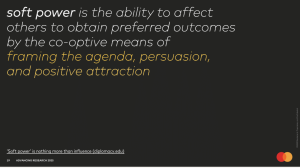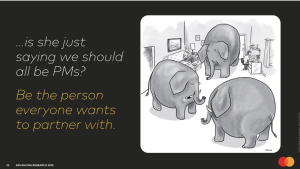Day 3–Claiming Your Power: Practical tools for amplifying your unique voice

— Thank you so much and people for joining me today and talking about power today
— What does reclaiming power mean?
- Some of you might feel unsettled with world and careers right now

— Industry has felt like giant game of musical chairs
- People feel stuck, hard to hire new roles, AI is looming
— Wondering how to move forward

— Dealt with feeling of unsettledness throughout career, and would keep looking for something new
- Also in past few years, approached things differently and got different results
— Feeling powerful as work I did in myself

— Prior to 2021, I was running design team for products, and when came back from parental leave did a lot of change management work and was told by stakeholder doing terrible job
- Got training revamped approach soup-to-nuts, and business looking for AI use cases to invest in
— Had vantage point for common needs across teams and got proposal funded and ended up as founding PM for Enterprise GenAI platform, and proving ROI for this thing
— Built so many skills, that propelled me much further than possible

— I’m a bit of chameleon but here to make people successful, despite confusion about roles

— People make assumptions of what we can achieve through no fault of their own and work of past assumptions
- Combination of obvious expertise and language was off
— Didn’t wait for someone to give the permission, and didn’t assume someone else was there
- If someone else was there, we’d all be waiting

— And I do want to talk about identity with you

— Power and identity are usually linked
- Typically don’t lead with title, and focus on value
— Foreground identities as designers and researchers can hold us back from succeeding
- Sometimes our assumptions, or others
— Think we might be showing off expertise, but for business person something they can’t understand
- People might not need details and level of craft should be assumed

— If craft is the standard expectation, what else is there?
- People can get frustrated, with few wins to go on
— Frustration turns inward, makes people nervous, and avoid hardest parts of role like navigating people and politics, which are the work
- As you get more experienced, get more skin in the game in terms of outcomes
- Craft should be jumping point for something else
- Partners should trust that you’ll make their goals yours

— After craft, value is what’s left

— Domain expertise is a kind of problem, and the more you learn someone’s world, the more they will invite you in
- Their goals will be your goals

— Talk about what executives are thinking and knowing enough to make a decision, as that will boost integrity of recommendation itself
- Know that it’s not executive’s job to focus on the craft — ‘gravity problem’ per Scott Berkun
- Assumed you can connect what you learn to their problems
— Mindset is also important: For executives, constraints aren’t real, so much as excuses for inaction
- Get data and right contributors
- Not just providing info, but informing decision, or making findings more actionable— think how are you moving teams forward

— Next there is idea of collapsing the talent stack. People are more intolerant of friction in all aspects of their lives, and there is blurring of lines between roles and competitive advantage for orgs
- Easier to deliver something coherent and enough overlap with roles to be effective

— Another trend of vibe-coding, of using AI to build and test ideas immediately for tight feedback loop and opportunity for improvement
- Zillow built working software without engineers and giving flashbacks to old days when people did everything not equally well, but good enough at time

— Research still happening out there without you and informing prioritization and PM with technical background and research and something real and probably fail
- People will build solution with what they’ve had in mind
— UXR will happen and regression and politics and org stuff
- New roles come from budget and control, along with repurposing headcount and aligned with incentives
- Need to give headcount away to research team to work with them
— You are capable of delivering value, but whether your structurally positioned for it is another question
- Information age assembly line not serving us well

— Per Marty Cagan
- PM sees itself doing discovery and delivery and what happens when coding is good and easy to build something again, the focus will be on product discovery work
— Cue people learning about product discovery at expense of UXR, and know it works poorly when people make what they are told to make

— Lot of talk on upstream and strategy of work play and PMs pushing downstream and telling themselves challenges will be product discovery and right things to build

— Where does this leave you? It’s a directional choice, and if you cringed a little bit, and downstream seems low value
- But about good judgment and clarifying risks for business at different altitudes so what’s stopping you
— Can debate whether UXR will exist as a formal role, but will impact decisions

— Talking about soft power through co-optive means and positive attraction and like framing problem and influencing decisions

— But get real about why you want power, i.e. address a specific challenge and how you feel about politics, budgets and aim for 2-for-1 and align your goals with others
- Possible to be strategic without influencing
— Better to work hard, than make crap
- Not a land grab, but recognize gravity people drawn towards

— About the Product Management (PM) thing
- Think some of you could do PM thing well, and making things make sense is research superpower and varies by org
— PMs having their own crisis as well, and we can’t plan to far out anymore, and don’t hang on playing musical chairs and way to turn current job into desired job and closer jobs and outcomes
- Reputation for excellence and be person to partner with

— You already do these hard parts well, but mindset change is the hardest part from being someone who just built, so highlight superpowers and coherence you make possible
— Three recommendations
- Develop domain expertise and sharpen POV for how business works and value quantified, as this will give organizational gravitas and 2-for-1
- Build partnerships and advocate for shared partnerships

— Study how decisions are made and input for decisions in org, and plan for it proactively, grasp rhythm of business and executive decision making tied to funding for project
- Time milestones accordingly

— Broaden skills and be curious about people around you, and more generous you are the more people around you will shine and seek out other perspectives and friendships with others
— Learn how to navigate conflict and course of action, and build sponsorship for resolving behaviors
- Make clear where value is coming from and sponsors come from

— Know this is a lot, so study world around you and be curious
Q&A
- Questions for insights and ideas to de-risk to be more palatable for senior stakeholders?
- Talk about work as de-risking business decisions about investment and how to make it more likely to make the right choice
- Overall messaging and help outline how executives will achieve goals
- Programs at universities that offer skill building for research?
- Nothing particular comes to mind
- Did put book links on resources list and best one for people layer is the uncommon executive by Yu Zhao
- Good baseline set of questions to develop relationships?
- Have them tell what priorities are, and when people mention and who mentions who
- Watch official messaging and compare it to what others say
- When people are inconsistent that gets antennae up
- Have them tell what priorities are, and when people mention and who mentions who
- How to overcome feeling of intimidation as you push back on stakeholder?
- Have meeting before meeting, and socialize ideas and recommendations with meeting attendees prior to actual meeting. If you get pushback
- Where is business case?
- What will I get
- Tie effort into their priorities and many people in conversational chain to grasp goals and objectives for the year, to be tied to them
- Have meeting before meeting, and socialize ideas and recommendations with meeting attendees prior to actual meeting. If you get pushback
- Building specific domain knowledge and different types of domains to be
- AI story was consequence of doing product here and was wild for end-to-end experience, and start with more narrow scope
- Value is in space in between with research equivalent of glue work, i.e. understanding how business units connect, and how that is perceived by customers and perceived internally
- How are aspects of business working together?
- How to get into decision maker when hierarchical lockdown?
- Have coffee to show who is doing the work and pull them in

